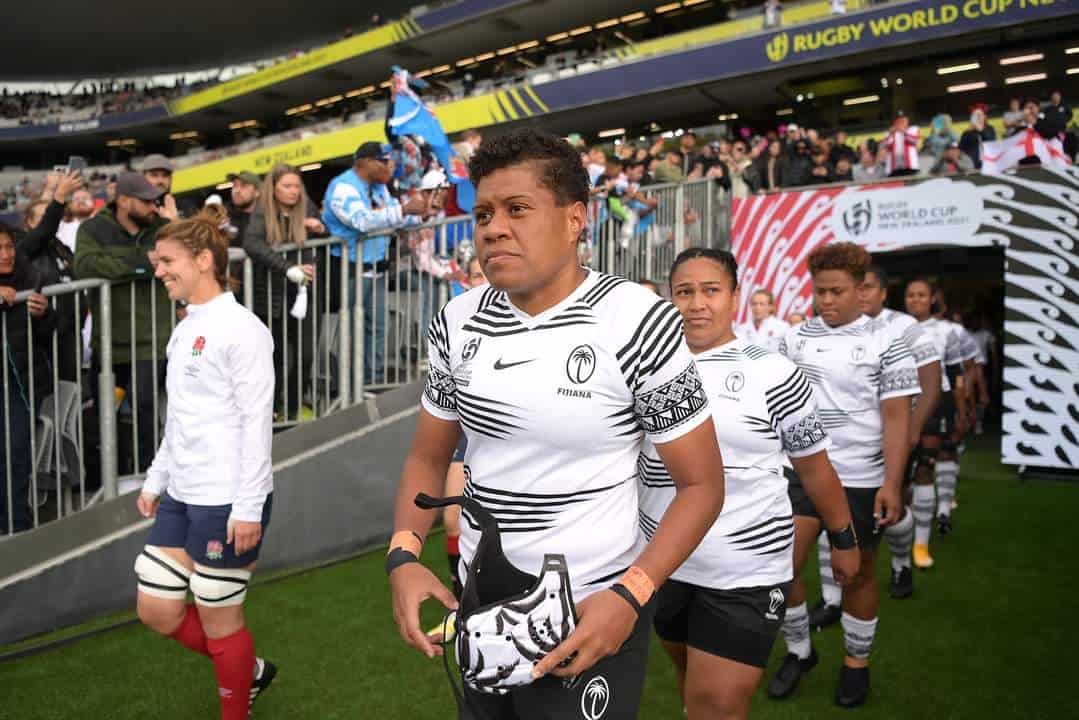While we hear a lot of lip service given to equality for women in sport, especially in rugby, what is it really like for women in the game?
Fiji’s Sereima Leweniqila is a former Fijiana captain, Fijiana Drua captain and has been involved with rugby for over 14 years. Here she shares details of her lifelong rugby journey.
My name is Sereima Dibula Leweniqila.
I am the eldest of 3 sisters. My dad is from Nabouono, Udu Macuata and my late mother from Namara, Kadavu. I also have links to Cakaudrove and Nairaviravi, Sauvou, Ra. I was brought up in Suva. Growing up my mother was the sole breadwinner of the family, was always busy, and engaged at work and the associations she was involved with. She was a Lecturer at the Fiji School of Medicine. My dad basically nurtured us and raised us at home (a bit of a role switch). Mom worked hard to keep us happy and tried in every-way to get us whatever we wanted. After my younger sister was born, my mother started to fall ill, medical complications and later was diagnosed with cancer.
My life and upbringing revolved around working hard to make something out of myself worthy of my mother’s approval – which involved schooling and getting good grades. I also had to take care of my two siblings, so that my mom could get better as she tried to match bill payments with her medical bills.
I was brought up in a way that failure was not an option and education was a priority in everything. [After school] I got accepted to do Health Science in Otago (initially, I always wanted to be a doctor). That same year my mom was very sick she had just got diagnosed with stage 4 lung cancer and had to undergo a long-term of vigorous chemotherapy. So, I opted to come back home and study nursing in Fiji. My mother was furious with the idea and told me that as long as she lived, she will not live to see any of her daughters become a nurse (she was a nurse). I was also accepted to try- out the royal navy in UK but after my visa got rejected twice I gave up hope. Even schooling in USP trying to do a Bachelor of Science was in vain.
Therefore, she sent me to work part-time while I awaited further instructions from her. I turned 21 on May 5th, 2011 and on August 2nd 2011, my mother passed away. All my dreams of being a doctor and to further my studies died with my mother. I had a family with two sisters still in school to look after and bills to pay.
My love of rugby started when I was small when I use to watch Waisale Serevi and Tomasi Cama play at the Hong Kong sevens on TV.
One of my dad’s younger brothers was a radio commentator…and he would travel to the Hong Kong 7s to commentate the game. I would usually ask him to bring me a souvenir from his travel, which was a small sponge rugby ball that was given to him during the tournament.
I would kick it and bounce it on the wall and pretend I was playing on the rugby field – a Fijian woman playing rugby being watched by thousands. Silently, I would tell myself that one day my family will watch me on TV like that.
I was 19 years old jogging on the streets one day when one of the girls of a team that was training at the Nabua tobacco grounds approached and asked me if I wanted to join. That’s where it all started, when I agreed and went training the next day. If I count it from the year I started training, it would be almost 14 years now that I have been involved with the sport.
Why rugby? Why not?
Hahahaha. I guess outclassing my uncles and cousin in a game of touch or playing with the neighbourhood boys and classmates at the Veiuto grounds gave me courage that for a girl I was good at rugby. Secretly, apart from netball and basketball, which I was involved with at high school, rugby was the only sport that gave me some sort of courage (both on and off the field – I did not know it at that time, until now.
I guess many of the pioneers of women’s rugby in Fiji can talk about it and laugh about it now over a bowl of grog.
But many young players now would never believe it when we talk about our journey. They would be at shock or amazed at how far women’s rugby has come in such a short time. I was privileged to play with some of the OG’s such as Eleina McDonald, Elenoa Kunatuba, Tavaita Rowati and so forth.
Some common challenges that we faced was being sworn at during training or playing, being mocked or teased even by family members, and some being physically threatening. Even some teammates were disowned by their own families. We faced what it felt like to be rejected and looked at with disgust.
When I was a kid I used to attend workshops that my mother use to run by the National Council of Women, I never really knew what battling equality for woman was all about until I had joined rugby and faced it both from the public and family.
On a positive note, I have watched it grow to where women’s rugby is now; gone are the days where we were treated as such, maybe a few bits here and there that are still lingering, but it’s not as bad as when I started playing. Now is a dawn of new era of women’s rugby in Fiji.
A moment I would never forget was with my grandmother.
My bubu (my mom’s mother), was a typical strong, traditional-protocol minded woman from Ra (the Russian woman as we would call her). On the day she heard I had started playing rugby, she was mad. One time, I was changing into my training outfit she was standing outside and as I was about to leave for rugby training she stood there and watched me and commented “Wailei, Sereima na qito qori na qito ni tagane, dua na ka na viavia tagane sa tiko vei iko” – meaning; ‘that game is a men’s game. Why are you trying to be a man?’
But I kept going despite the negative comments. On the day I played my first national match against the NZ Samoans which was back in 2012, The Fiji Times took a picture of my team after the walloping we gave the touring side. One day I walked into my grandmother’s bedroom – her walls were filled with pictures of her sons and her. However, I could not help but notice – pinned on one of her photo frames was a picture of me on the paper with my Fijiana teammates from that NZ Samoan’s game.
I was filled with so much emotion that day.
I did not taunt her on it but came out smiling at her. I did not want to wound her pride, but I could tell she was proud. Therefore, I started to think if I could change the heart and mind of this stubborn Ra woman whom I love and is so close to me, than I can help change people’s mindset as well on the way they looked at a woman rugby player.
Another one was the day the Naitasiri Province with the assistance of the Naitasiri old players association did a ‘vaka ciri salusalu’ (a Fijian traditional celebration after an achievement) for us when we returned from the Super W competition – a staunch and dominant supporter of the men’s team, this proud province is. It was a historic moment when we all sat in front of the Vanua and the ‘turaga ni yavusa’ (Fijian traditional chief) and the ‘vei qaraqaravi vakavanua’ (formal traditional welcome) was done to us. They had mentioned it was the first time for a woman to be seated at the top and the ‘sevusevu’ and ‘yaqona’ was presented to us. It was done in such a way that it was fitting for such a grand and honourable occasion; honouring the women who represented their beloved province. This marked not only a traditional barrier breakthrough but also an historic one, again changing the mindset.
This was how I tried to overcome the mindset of those who did not really care about women’s rugby from my family, to my friends, throughout my workplace and finally the public. It took years of perseverance, many actions, less words and with the Grace and Honour of God.
I was initially named the Captain of the Fijian Drua before going offshore [for the Super W competition]. While in Australia, the captaincy was given to Bitila Tawake – although I assisted her on the field or when she would come off. I was not given the captaincy until the international test matches.
Most girls were new, so it was three months of getting to know each other and team bonding. I had challenges to overcome as well during the Drua campaign; not just as a player but personally as well. I found myself in a new challenge mentally where I was mentally going through stress/slight depression and I struggled. I had to take time out and visit family in order to recuperate and comeback firing during game day. I was blessed to have family and friends around me that helped me fight through each day.
I loved playing – First time in my life I was playing with such intention to win for the team, family and for the future. We wanted to make waves, and big waves we did make.
Our challenge in every game was “Tabu na Lusi” and again we were reminded that “Na Drua e Sega ni Dau Dromu“, so losing was not an option. I did not realise how big the win was until when I came back to Fiji. We were greeted with both men and women who came to shake our hands to congratulate us when they saw us. Our stories were shared around and they wanted to take pictures with us – they respected us and they remembered our names.
All those years of going through all those hard challenges, now it was high time we finally see the fruition of perseverance and that the mind-set had finally changed. Well, maybe not all but many more was jumping into the bandwagon of women’s rugby Fiji. I was not just proud, I was satisfied in reality that what I set out to accomplish in the first place on women’s rugby, was done. But personally my goal was not done – the world cup was going to be my swansong
It’s always an honour to represent the country but to be chosen as [Fijiana] captain was by far one of the greatest honours.
I was not much of a speaker or a talker and this was something I had to learn along the way – to lead. I always thought the white jersey does not only represent the Vanua and the nation, but your faith; the years of struggle and the good times, your family, your team and the dreams of all those Fijiana woman who have played the sport and the young ones who are watching and wanting to become you.
To lead all those years did not only teach me so many things including humility but also moulded me to who I am today. To be humble, to serve, to listen, to be grateful and lastly that leading it’s not just a calling it is an anointing.
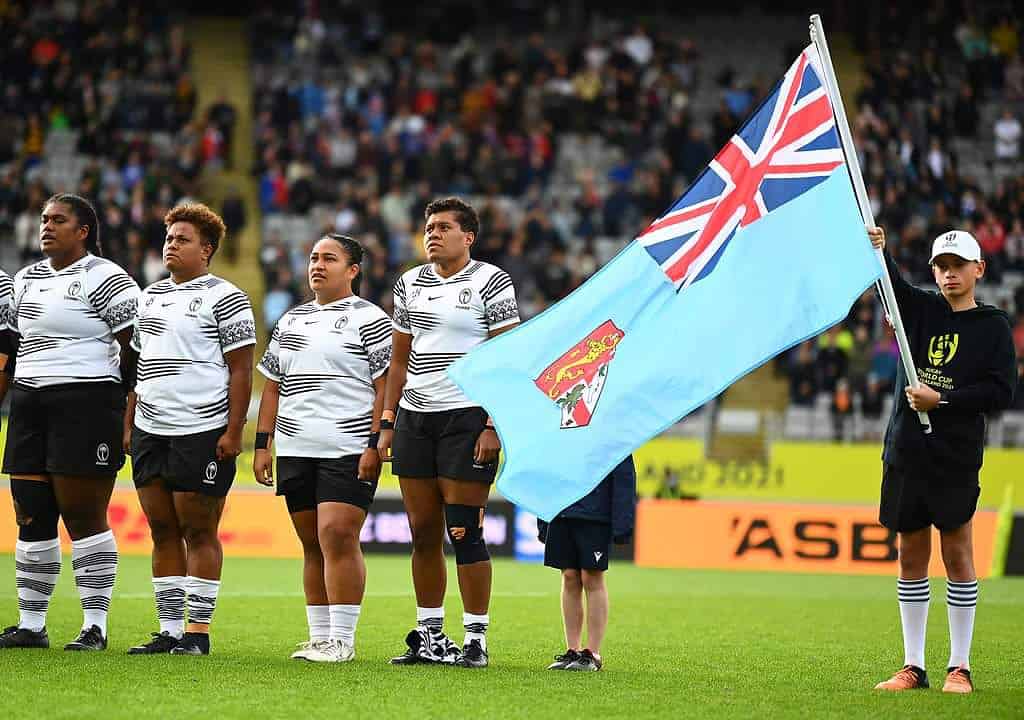
During the Rugby World Cup last year, one of the most memorable moments for me was when we were introduced during the Opening Ceremony.
I stood on the podium, hearing all those cheers as we were dubbed the crowd favourites. As I stood there, I realised a dream coming into fulfilment and it was emotional.
Playing against the best was an amazing feeling but you also realised how well looked after the best teams in the world are. We were going against teams that had a well-developed woman’s program over the years and had many more test matches than our Fijiana team (money talks I guess). However, for a small Pacific nation in its first World Cup outing, we did a good job climbing from number 21 to 9 in the world rankings – that was some climb. And I know we will get better as the years progress.
However, there were some issues that were addressed and challenged during the World Cup; some things that I thought has been dragged over the years.
I believe whatever has happened during the World Cup has been addressed the proper way and through the correct channels. (I hope for some resolve). And after taking some-time off rugby, it made me realise that we were all first-timers to a Journey as big as the World Cup; both management and players, and at the cost of a few things I believe there was so much learning done.
From my point of view I always believe for all women’s teams, the need for a good manager and management, transparency, communication, professionalism, a healthy & flexible environment, just as [with] the men’s team.
An excellent Head coach, coaches and trainers surrounded us but a part of me felt the union failed in both addressing issues that has long being pending over the years, looking after us and ensuring we get the best on and off the field. Most things would always be swept under the carpet. I guess, it depends on how issues are presented as well – done right and it could be heard. I strongly believe the fight for equality will always be there and our woman rugby players do deserve to be paid what is due to them and to be treated well.
On the brighter side, the appointment of the new interim CEO looks bright and shuffling of the staffs in the ‘Vale-kau’ (FRU), I know would bring some positive changes and a great future.
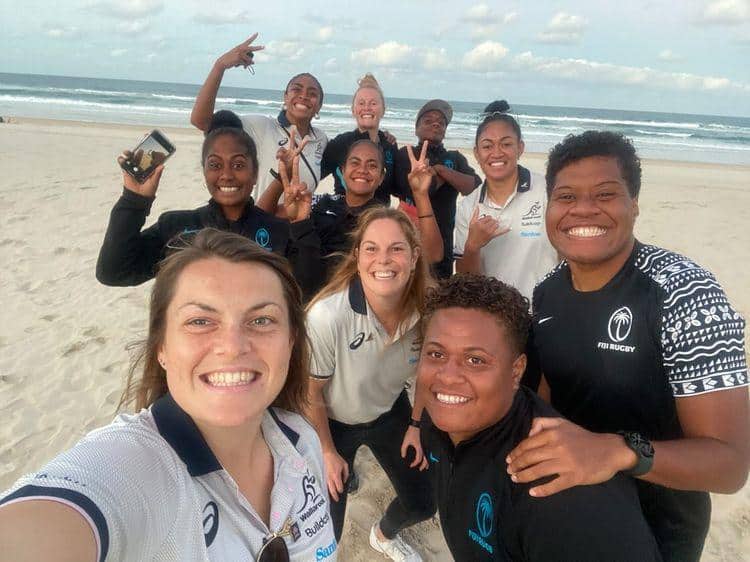
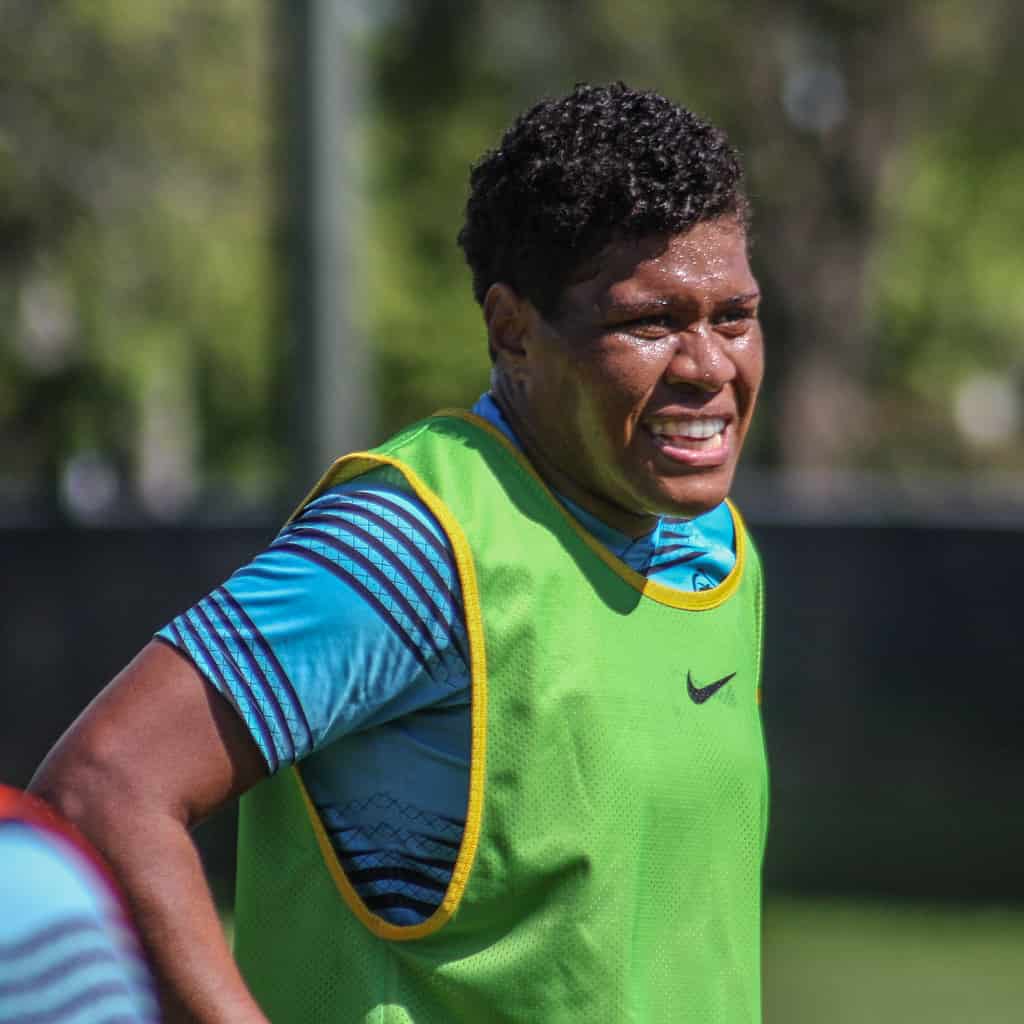
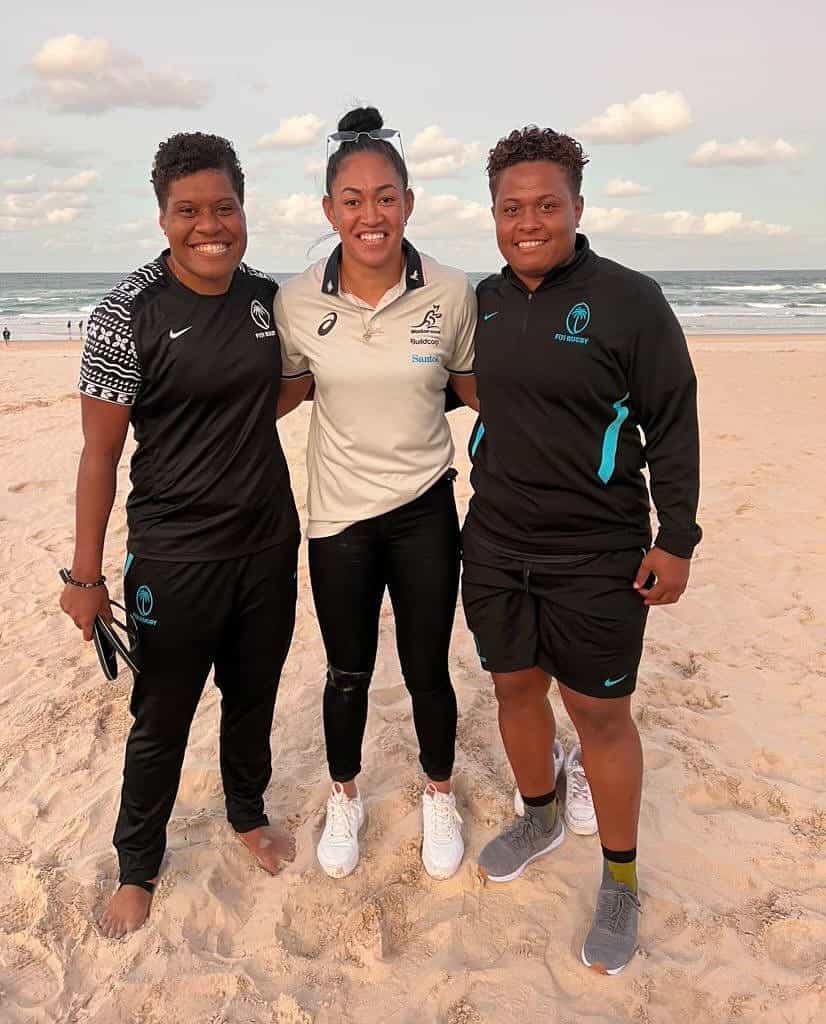
It’s about having the right people in the right position.
Get qualified and passionate people on board who will help to move the sport forward.
I always felt that club rugby struggled a lot In terms of funding and recognition, but it is growing nonetheless. And with the recent results in 7s and 15 women’s national sides, the growth and interests of women’s rugby has increased immensely. A more structured, well-equipped clubs system needs to be set-up. More awareness and education on this part on how to run a woman’s club adequately and effectively.
In the end it’s always about the funding, transparency and how much is allocated to women’s rugby.
We have a few very qualified woman coaches that are in Fiji at the moment, but they need more exposure and recognition on the work they do.
It’s always been God for me, if you are rooted deep enough no matter how many times you have failed, gone off the track or have fallen; you will always have a purpose.
Also a lot of hard work, discipline, time management and sacrifice are needed. I had to balance between work, training and family. Most times, you find yourself drained and mentally stressed and missing out a lot of family and friend activities.
Take heed of good advice from people and mentors that have walked the same path. I was lucky to have some former Flying Fijian players and coaches who I could run too for advice and encouragement. One-day rugby in the Pacific will become fully professional for woman, but a player without those values will struggle.
I did want the World Cup to be the swansong to my rugby career but after taking a break to recuperate mentally and physically I am able say with 100% confidence, it’s not all over.
I would need to give back to my club and the province that I have represented which is both Suva and Naitasiri, that’s for sure.
It would be awesome to return to the union and be part of change and women’s rugby later in the future, but that’s a long term goal that may or would not happen. I got my eyes on something at the moment; if God wills it I might or may not return to the field but on the mean time just work, recovering, self-love and healing.
This interview has been edited for length and flow.
